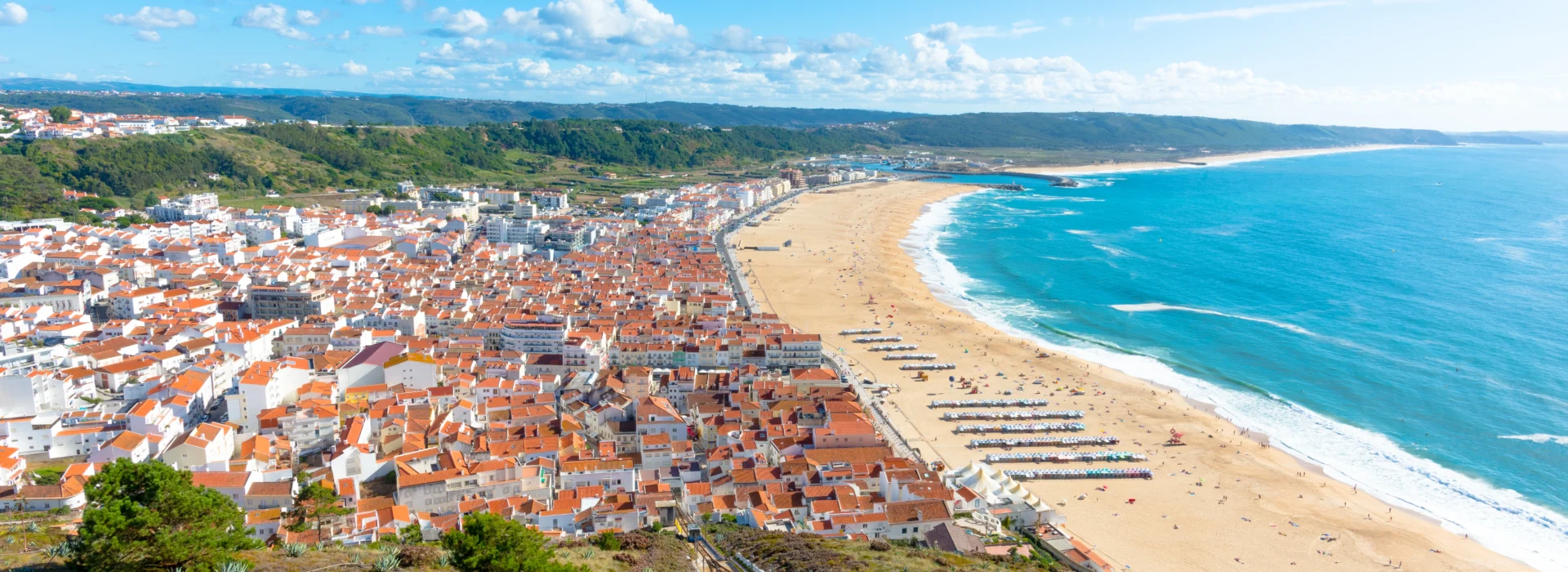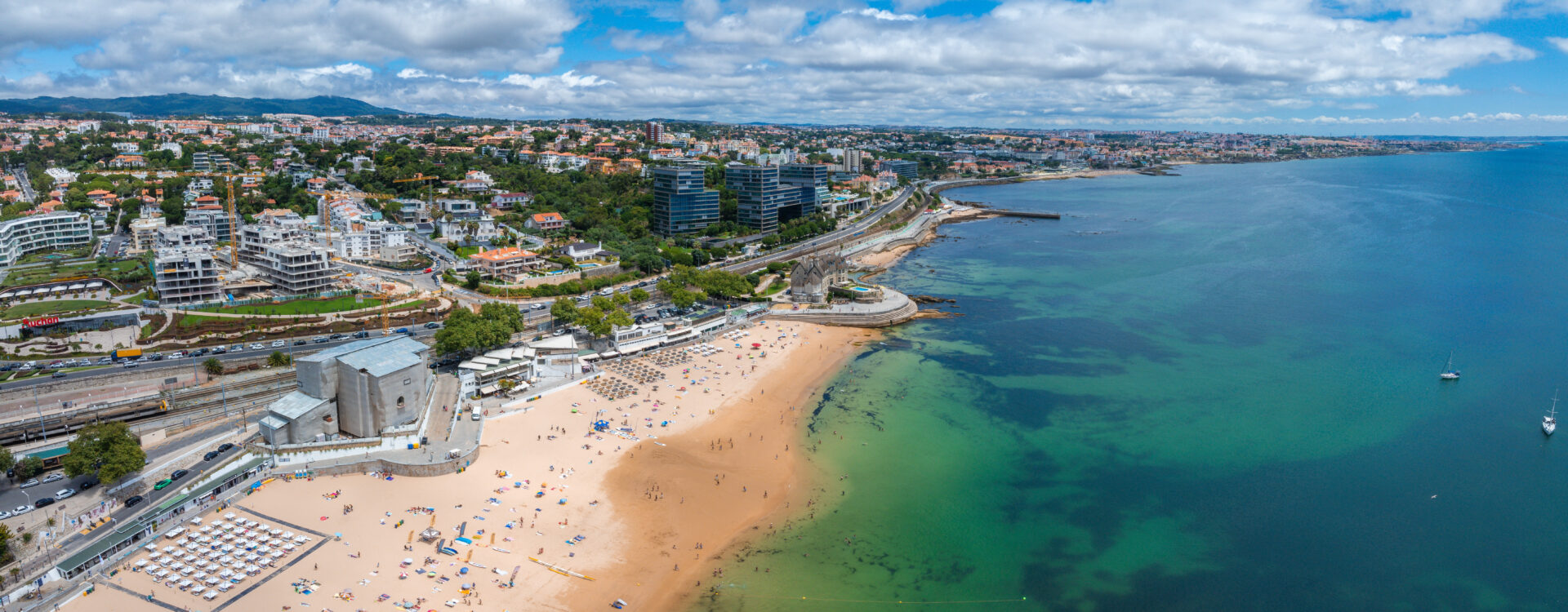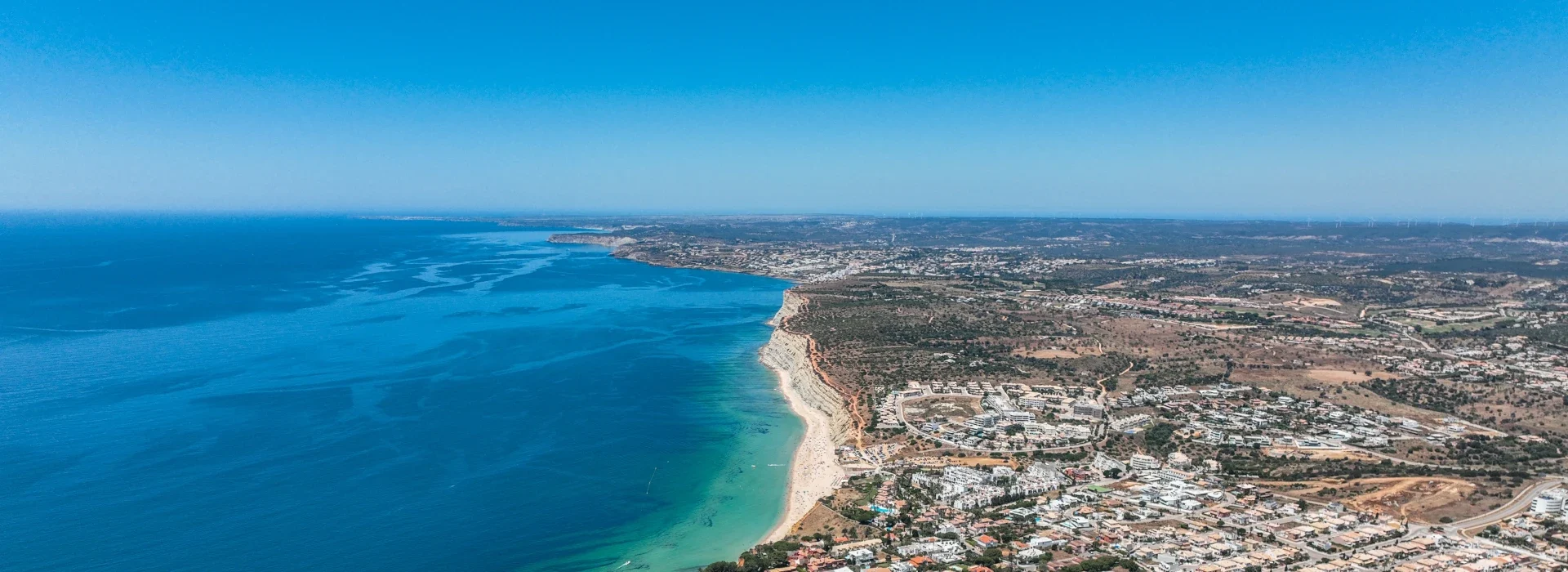Relocating from Australia or New Zealand
Portugal has become a preferred European base for Australians and New Zealanders seeking a more balanced lifestyle, personal safety, and a lower cost of living. The country’s mild climate, stable infrastructure, and proximity to the rest of Europe create an appealing contrast with life in the Southern Hemisphere.
Whether the move is motivated by remote work, retirement, or a long-term family relocation, settling in Portugal offers a chance to combine practical advantages with a slower, community-oriented rhythm. This guide covers the key aspects of relocation — including visa and residency options, housing, taxation, and healthcare — as well as cultural adaptation and daily life comparisons with Australia and New Zealand.
For readers looking for a wider overview of life in the country — from healthcare and education to property and legal procedures — see our comprehensive Moving to Portugal guide.

Talk to our Team
Table of Contents
What’s Driving the Move from Australia and New Zealand
Lifestyle, Financial, and Personal Factors
Relocating from Australia or New Zealand often reflects a desire for a different rhythm of life rather than a single motivation. Portugal combines a temperate climate with relative affordability and access to wider European culture.
For remote professionals, stable internet and a supportive visa framework make working from Portugal practical. Retirees value its safety, mild winters, and healthcare standards. Families tend to appreciate a sense of community and lower living costs, particularly outside Lisbon and the Algarve.
Growth of the Antipodean Expat Population
Although the Australian and New Zealander presence in Portugal remains modest, there is a gradual increase in arrivals. Lisbon, Porto, and coastal towns in the Algarve host small communities that stay connected through local meetups, business networks, and cultural associations. The sense of distance from home is often eased by digital connectivity and an inclusive social environment where English is widely understood in urban settings.
Portugal vs. Australia & New Zealand: Key Lifestyle Differences
Everyday life in Portugal contrasts with the scale and pace of Australia and New Zealand. Distances are shorter, public services are centralised, and social interactions tend to be more face-to-face. Below are practical differences new residents quickly notice.
Cost of Living
Living expenses remain lower than in Sydney, Melbourne, or Auckland, especially in housing and daily groceries. Dining out, utilities, and local transport are also more affordable. However, imported goods and private schooling can offset part of the savings.
Healthcare
Portugal’s public system — SNS (Serviço Nacional de Saúde) — provides universal access for legal residents. Public care is generally reliable, though wait times can be long. Private healthcare offers short appointments and multilingual professionals at comparatively moderate costs.
Weather and Seasons
The climate is milder overall but varies by region: the south (Algarve) stays warm even in winter, while northern cities like Porto are cooler and wetter. Australians and New Zealanders often need time to adjust to shorter winter days and a reversed holiday calendar.
Transport and Infrastructure
Cities are compact, and public transport covers most daily needs. Lisbon and Porto have metro systems, while regional trains and buses connect secondary towns. A car becomes useful mainly in rural areas or for exploring smaller coastal regions.
Community and Daily Rhythm
Life unfolds at a measured pace. Long lunches, later dinners, and public offices closing mid-afternoon can surprise new arrivals. Once adapted, many residents describe this rhythm as one of Portugal’s main advantages — it prioritises time, conversation, and quality of life over constant speed.
Residency and Visa Options for Australians and New Zealanders
Australians and New Zealanders may stay in Portugal for up to 90 days without a visa under the Schengen framework. For longer stays, a residence visa is required. Applications are submitted to the nearest Portuguese consulate before travelling, and residence permits are finalised with AIMA (Agência para a Integração, Migrações e Asilo) — the Portuguese authority responsible for residence and immigration matters — after arrival.
Visa-Free Travel and Long-Term Stay
Short visits are visa-free up to 90 days within 180. For residence beyond that period, select an appropriate visa pathway based on income, work, or entrepreneurship.
D7 Visa (Passive Income)
Suited to retirees or individuals with passive income such as pensions, dividends, or rent. Applicants show proof of stable earnings and accommodation in Portugal. The visa leads to renewable residence permits and eventual eligibility for permanent residency or citizenship.
Digital Nomad Visa
Designed for remote professionals earning income from abroad. Proof of income and employment or client contracts is required. It allows residence for one year, renewable up to five years.
D2 Visa (Entrepreneur)
Available to entrepreneurs or self-employed professionals planning to open or expand a business in Portugal. Requires a viable business plan, proof of funding, and evidence of financial means during the initial phase.
Residency Permits and Citizenship
After five years of continuous legal stay, residents can apply for permanent residency or Portuguese citizenship, subject to integration and basic language requirements (A2 Portuguese).
Tax Considerations
Portugal maintains double taxation agreements with both Australia and New Zealand. Applicants should confirm fiscal status before moving and may explore the Innovation and Research Incentive (IFICI), which offers specific tax rules for qualified professionals. Regulations may vary depending on income sources — coordinated advice is recommended.
How to Move to Portugal from Australia and New Zealand
Before Departure
- Confirm the residence pathway (D7, Digital Nomad, D2) and consular requirements.
- Arrange translations and apostilles where required; keep digital and printed copies.
- Secure accommodation or proof of intended address for the visa stage.
- Arrange private health insurance that meets visa conditions.
Visa Application
Submit your application through the nearest Portuguese consulate. Processing often ranges from 8–12 weeks but can vary. After arrival in Portugal, attend your residence appointment with AIMA to finalise documentation.
Finding a Place to Live
Most newcomers begin with a rental contract. Long-term leases typically require a Portuguese tax number (Número de Identificação Fiscal, NIF). Exploring areas in person before purchasing is advisable.
Shipping Belongings and Customs
Professional relocation services simplify customs procedures. Duty exemptions may apply for personal goods if residency is granted within the first year.
Setting Up in Portugal
- Register your address locally; obtain proof of residence if requested.
- Apply for a NIF (tax number) and open a Portuguese bank account.
- Register with your local health centre for SNS access.
- Attend your AIMA appointment to finalise the residence permit.
Portugal Relocation Checklist for Australians and New Zealanders
- Choose the residence pathway and confirm consular requirements.
- Gather documents early; arrange certified translations and apostilles.
- Secure accommodation or proof of intended address.
- Obtain a NIF and prepare banking arrangements.
- Keep private health insurance active until SNS registration is complete.
- Travel after visa issuance; carry digital and printed copies of all records.
- On arrival: register address, open bank account if needed, attend AIMA appointment.
- Set up essentials (mobile plan, utilities) and register at the local health centre.
- If you drive: confirm licence exchange with IMT (Instituto da Mobilidade e dos Transportes), Portugal’s authority for driving licences and vehicle registration.
- Begin Portuguese lessons and connect with local communities.

Talk to our Team
Best Places to Live in Portugal for Australians and New Zealanders
Portugal offers varied lifestyles across regions — urban, coastal, rural, and island settings. Choosing the right area depends on climate preference, proximity to services, and community atmosphere.
Lisbon and Surroundings
The capital combines employment opportunities with cultural life. Suburban areas such as Cascais, Oeiras, and Carcavelos attract English-speaking families for schools, coastline, and commuter links. Rental prices are higher than elsewhere, balanced by access to international services, healthcare, and transport.
Porto and the North
Porto blends tradition with a growing creative economy. Housing costs are generally below Lisbon’s. Nearby Braga, Matosinhos, and Vila Nova de Gaia offer a slower rhythm with modern amenities, strong food culture, and good public transport.
Algarve
Known for its sunny climate and developed infrastructure, the Algarve appeals to retirees and remote workers alike. Healthcare and international schooling are accessible around Faro, Albufeira, Lagos, and Tavira. Inland towns provide quieter living at lower cost, with beaches still within reach.
Madeira and the Azores
These Atlantic islands suit residents seeking mild weather and nature. Madeira offers dynamic services and entrepreneurship incentives, while the Azores provide a slower pace and strong community ties. Air links to Lisbon are frequent, which helps with mainland appointments.
Smaller Towns and Regions
Medium-sized cities such as Coimbra, Leiria, and Évora deliver an authentic Portuguese experience with manageable living costs. University hubs and research centres support family life and long-term integration.
Comparing Costs: Portugal vs. Australia and New Zealand
| Category | Portugal (EUR) | Australia/NZ (AUD/NZD) |
| Rent (1BR City) | €800–€1,200 | $2,000 / NZ$2,200 |
| Groceries (monthly) | €250–€350 | $600 / NZ$650 |
| Health Insurance | €50–€120/month | $300–$400 / NZ$350+ |
| Utilities | €120–€160/month | $180+ / NZ$200+ |
| Dining Out | €12–€20 per meal | $35–$50 / NZ$40+ |
Figures vary by city and lifestyle. Indicative context: average asking rents are typically higher in Lisbon than Porto, with mid-sized cities such as Coimbra and Leiria below those levels. Source: INE — Instituto Nacional de Estatística (Portugal’s national statistics authority), 2024.
Health and Medical Access for Australians and New Zealanders
Public Healthcare (SNS)
Legal residents can register with the SNS (Serviço Nacional de Saúde) for subsidised access to GPs, specialists, and hospitals. Registration usually requires proof of address and residence status.
Private Insurance
Many newcomers maintain private coverage, especially during the first year. Premiums are moderate by international standards and provide faster appointments and wider provider choice.
Reciprocal Agreements
There is no formal healthcare agreement between Portugal and Australia or New Zealand. Comprehensive private insurance is recommended until SNS access is confirmed.
Pharmacies and Medications
Pharmacies are widespread and well-regulated. Many common medications are available at competitive prices, and pharmacists often speak English in urban areas.
Education and Schooling in Portugal
Public School System
The national system is administered by the Ministry of Education and offers free schooling from age six. Instruction is in Portuguese, which suits families intending to integrate long-term. Younger children typically adapt faster to the language environment.
International Schools
Lisbon, Cascais, Porto, and the Algarve host international schools offering British, IB, or American curricula. Fees vary but are often lower than in Australia or New Zealand.
Higher Education
Public universities charge moderate tuition, with an increasing number of programmes taught in English. Recognition of foreign qualifications can be arranged through DGES (Direção-Geral do Ensino Superior), the Portuguese authority responsible for higher education.
Tax Considerations for Australians and New Zealanders
Defining Tax Residency
Tax residency generally applies if you spend 183 days in Portugal within a 12-month period, or if you establish a habitual residence. Becoming tax resident may bring worldwide income into Portugal’s tax scope. Obtain a NIF early and keep documentation consistent across jurisdictions.
Double Taxation Agreements
Portugal maintains treaties with Australia and New Zealand to avoid double taxation. You must still file accurately in each country, declaring foreign income where required and applying treaty relief where applicable.
The NHR Regime (legacy)
The Non-Habitual Resident regime closed to new applicants, but those who secured NHR before it ended can typically continue for the remainder of their 10-year period under the original terms.
Current IFICI Regime
Portugal introduced the Tax Incentive for Scientific Research and Innovation (IFICI) for qualified professionals in defined fields. Eligible Portuguese-sourced employment or self-employment income may be taxed at a flat 20% for up to 10 years, with limited relief on certain foreign income; pensions are excluded. Confirm scope and eligibility with AT (Autoridade Tributária e Aduaneira), Portugal’s tax authority.
Financial Planning
Seek coordinated advice from a tax professional familiar with Australian/New Zealand and Portuguese rules. Timing of tax residency, superannuation/KiwiSaver withdrawals, and asset disposals can materially affect outcomes.
Staying Connected to Australia and New Zealand
Banking and Retirement Funds
You can generally keep existing bank accounts and manage superannuation or KiwiSaver from abroad. Some schemes allow payments to international bank accounts, subject to fees and rules. Consider FX costs and reporting obligations once tax resident in Portugal.
Voting and Government Services
Overseas voting may remain possible. Embassies and consulates accredited to Portugal can assist with documentation, passport renewals, and certifications.
Accessing Media and Content
Australian and New Zealand programming is available via international platforms, subject to licensing. Check provider terms for overseas access.
Managing the Distance
Portugal runs on Western European Time (UTC/UTC+1). Time differences with Australia and New Zealand are substantial, so planning windows for work calls and family check-ins helps maintain routine.
Transport and Driving in Portugal
Driver’s Licence Recognition
Australian and New Zealand licences are typically valid for a limited period after arrival (often up to 185 days once resident). Long-term residents may need to exchange their licence with IMT (Instituto da Mobilidade e dos Transportes). Requirements can vary, so confirm directly with IMT.
Car Ownership
Purchasing or importing a car involves taxes and registration costs. Many new residents rely on public transport or lease a vehicle, using ownership mainly in rural or less connected areas.
Public Transport
Urban networks (metro, buses, suburban trains) cover daily needs in Lisbon and Porto, with regional trains and coaches linking medium-sized cities. Monthly passes offer good value; intercity services are reliable for cross-country travel.
Integrating into Portuguese Life
Social and Cultural Norms
Interactions can be reserved at first, especially outside major cities. Courtesy and patience are valued, and relationships tend to build over repeated contact.
Learning the Language
English is common in urban and tourist areas, but Portuguese eases daily life and broadens opportunities. Language courses are widely available; basic proficiency also supports residency integration and future citizenship applications.
Dealing with Bureaucracy
Administrative steps take time. Keep digital and paper copies of all documents. Local support can streamline appointments with AIMA, AT, and municipal offices.
Celebrating Australian and New Zealand Cultures
Community groups often mark ANZAC Day, Australia Day, and Waitangi Day, alongside local holidays — a good way to bridge traditions and meet other residents.
Antipodean Communities and Support Networks
Finding Fellow Expats
Australians and New Zealanders connect through local meetups, community associations, and online groups. Joining neighbourhood or interest-based networks helps with practical tips and social life.
Social and Business Networks
Professional associations, co-working spaces, and binational forums can help with contacts, hiring, and market understanding.
Community Events and Stories
Regular informal gatherings and cultural events offer first-hand insights into settling in Portugal, including housing searches, schools, and navigating services.
Essential Contacts and Resources
- AIMA – Agência para a Integração, Migrações e Asilo: aima.gov.pt
- AT – Autoridade Tributária e Aduaneira: at.gov.pt
- SNS – Serviço Nacional de Saúde: sns.gov.pt
- IMT – Instituto da Mobilidade e dos Transportes: imt-ip.pt
- INE – Instituto Nacional de Estatística: ine.pt
- Embassy of Australia (accredited to Portugal)
- Embassy of New Zealand (accredited to Portugal)
Common Challenges and How to Navigate Them
Adjusting to Distance
Distance can be felt strongly during holidays and family milestones. Set predictable call times and plan trips in advance to manage costs and time zones.
Language Barriers
Start with everyday phrases and gradually build vocabulary. Short, consistent study sessions often work better than intensive bursts.
Bureaucracy
Appointments can be delayed. Keeping checklists, tracking deadlines, and obtaining local support reduces rework.
Seasonal and Lifestyle Transitions
Expect shorter winter days, later dining hours, and different public-office timetables. Flexibility makes adaptation easier.
How We Help Australians and New Zealanders Move to Portugal
Australians and New Zealanders planning a move to Portugal can be connected with a network of experienced local partners offering relocation guidance tailored to their needs. Support typically covers visa and residency procedures, housing, taxation, and daily setup — helping newcomers adapt smoothly and confidently to life in Portugal.
This collaborative approach allows new residents to navigate local administration with clarity, work with trusted professionals, and establish a stable foundation for their relocation journey.

Talk to our Team
Frequently Asked Questions
Can I receive my Australian or New Zealand pension while living in Portugal?
Yes. Superannuation and KiwiSaver accounts can usually remain active, though withdrawals and transfers may have tax implications. Consult a financial adviser experienced in both jurisdictions to understand reporting and taxation requirements.
Is it possible to buy property in Portugal from abroad?
Yes. Non-residents can purchase property in Portugal but must first obtain a NIF (Número de Identificação Fiscal), the Portuguese tax number required for financial and legal transactions. Using a licensed local solicitor (advogado) is essential for due diligence and confirming property registration. Many buyers visit or rent before purchasing to compare areas and markets.
How easy is it to integrate into Portuguese society?
Integration tends to come gradually through daily life. Joining local groups, attending community events, and learning Portuguese all help. Portugal’s social rhythm is welcoming yet reserved; courtesy and patience go a long way.
What healthcare options do new residents have?
Legal residents can register with the SNS for subsidised care. Many newcomers also keep private insurance for flexibility and faster access, particularly during the first year.
What are the main bureaucratic challenges for new arrivals?
Processes such as tax registration, residence permits, and vehicle licensing can take time. Keeping certified copies of documents and using professional assistance where needed can simplify appointments with AIMA and other authorities.
How does Portugal’s public transport compare to Australia and New Zealand?
Portugal’s cities are compact and well connected. Metro, bus, and train networks make daily travel easy without a car. Rural areas may require a vehicle, but overall mobility is convenient by comparison.
Can I continue working remotely for an overseas employer while living in Portugal?
Yes, under the Digital Nomad Visa or another suitable residence pathway. You must demonstrate income from abroad and comply with Portuguese tax residency rules if staying more than 183 days.
This guide was prepared with care to provide clear, factual information based on official Portuguese sources such as AIMA (Agência para a Integração, Migrações e Asilo), AT (Autoridade Tributária e Aduaneira), SNS (Serviço Nacional de Saúde), IMT (Instituto da Mobilidade e dos Transportes), and INE (Instituto Nacional de Estatística). While we aim to keep content current, readers should always confirm details with official institutions or qualified professionals when planning their move.














